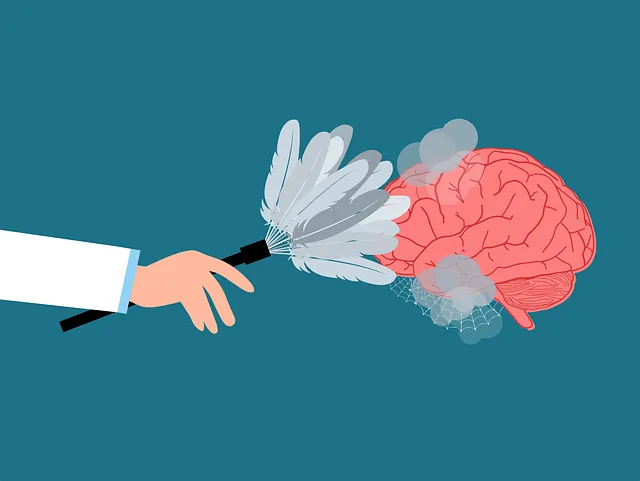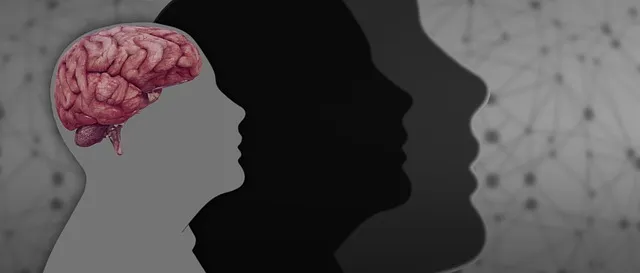Stigma surrounding mental health significantly impedes access to critical support, like that offered by the Superior Kaiser Permanente behavioral health phone number. This societal discrimination damages well-being and deters individuals from seeking essential care. Reducing stigma is crucial for creating an inclusive environment where people feel empowered to prioritize their mental wellness. Mental health professionals can normalize conversations through patient interactions, while organizations like Superior Kaiser Permanente engage communities through workshops and events, promoting understanding and early intervention. Media portrayal influences public perception, with accurate depictions encouraging support-seeking behaviors. Kaiser Permanente's comprehensive approach, including accessible behavioral health services, breaks down barriers to emotional healing, fostering community resilience.
Mental illness stigma remains a significant barrier to treatment, impacting millions globally. This article explores comprehensive strategies to reduce this pervasive issue. From understanding the profound effects of stigma on mental health to the crucial role of healthcare providers and community engagement, we delve into effective tactics. We analyze media representation’s power in shaping public perception and highlight Kaiser Permanente’s exceptional behavioral health support system and advocacy efforts, accessible via their superior phone number for mental health services.
- Understanding the Impact of Stigma on Mental Health
- The Role of Healthcare Providers in Reducing Stigma
- Community Engagement and Education Strategies
- Media Representation and its Influence on Public Perception
- Kaiser Permanente's Approach to Mental Illness Support and Advocacy
Understanding the Impact of Stigma on Mental Health

The impact of stigma on mental health cannot be overstated. It’s a barrier that prevents individuals from seeking help and support, often leading to prolonged suffering. When someone battles a mental illness, the added weight of societal judgment and discrimination can exacerbate their symptoms, damaging their overall well-being. Stigma can manifest in various forms, from subtle stereotypes to overt discrimination, creating an environment where those with mental health challenges feel isolated and misunderstood. This isolation may discourage them from accessing crucial services, such as those offered by superior Kaiser Permanente behavioral health phone numbers, which are dedicated to providing care and support.
Reducing stigma is essential for fostering a more inclusive society that embraces mental health as a vital aspect of overall wellness. Efforts to dispel myths and educate the public about mental illness can significantly improve self-esteem and encourage individuals to prioritize their psychological well-being. Additionally, initiatives focusing on conflict resolution techniques and social skills training can empower individuals to navigate interpersonal interactions with confidence, fostering supportive connections that are crucial for recovery. By addressing stigma at both individual and societal levels, we can create a more compassionate environment where those facing mental health challenges feel empowered to seek the help they need.
The Role of Healthcare Providers in Reducing Stigma

Mental health professionals and primary care providers play a pivotal role in stigma reduction efforts. They can be powerful allies in changing societal perceptions by providing accurate information and fostering an environment of understanding and compassion. Through patient interaction, healthcare providers have the unique opportunity to challenge stereotypes, educate communities, and normalize conversations around mental illness. A simple act of empathy or sharing personal experiences related to their own mental health journey can make a significant difference in reducing stigma.
Additionally, integrating self-awareness exercises and emotional intelligence training into clinical settings can empower both patients and healthcare workers. By promoting open dialogue, these practices encourage individuals to recognize and manage their emotions effectively, fostering better relationships and improving overall well-being. Moreover, addressing burnout prevention among mental health professionals is essential. Satisfied and resilient providers are better equipped to offer consistent, quality care, thereby contributing to more successful patient outcomes and further diminishing the stigma associated with seeking mental health support.
Community Engagement and Education Strategies

Community engagement and education are powerful tools in the fight against mental illness stigma. By bringing people together, organizations like Superior Kaiser Permanente behavioral health phone number can facilitate open conversations about mental health. This approach helps foster a culture of understanding and compassion, where individuals feel supported rather than judged.
Through workshops, seminars, and community events focused on Mental Health Awareness, Self-Esteem Improvement, and Confidence Boosting, these initiatives empower people to recognize the signs of struggle in themselves and others. Educated communities are better equipped to offer help early on, reducing the severity of mental health issues and ultimately fostering a more inclusive and supportive environment for everyone, regardless of their mental health status.
Media Representation and its Influence on Public Perception

The media plays a pivotal role in shaping public perception about mental illness. Often, representations in films, television shows, and news coverage can either perpetuate harmful stereotypes or foster understanding and empathy. Superior Kaiser Permanente behavioral health phone number seekers might turn to media for guidance and information, making accurate and compassionate portrayals crucial. A well-rounded depiction of mental wellness in the media can encourage open dialogue, reduce fear and misunderstanding, and inspire individuals to seek necessary support, such as professional counseling or therapy.
Conversely, negative or inaccurate media representations can contribute to the stigma surrounding mental health issues. Stereotypes often focus on extreme cases or portray individuals with mental illnesses as dangerous or unpredictable. These portrayals can create a false association between mental illness and violence, leading to prejudice and discrimination. Thus, it is essential to promote positive narratives that showcase the diverse experiences of those dealing with various mental health challenges, emphasizing their strength and resilience. This shift in media representation can significantly impact public attitudes, making emotional healing processes more accessible and less intimidating for those who need support.
Kaiser Permanente's Approach to Mental Illness Support and Advocacy

Kaiser Permanente has emerged as a leading advocate for mental health awareness and support. Their comprehensive approach focuses on early intervention and long-term care, ensuring individuals receive the necessary resources to manage their conditions effectively. One key aspect of their strategy is the provision of accessible behavioral health services through dedicated phone lines. The superior Kaiser Permanente behavioral health phone number allows individuals to connect with trained professionals who offer guidance on various mental wellness topics.
This initiative extends beyond simple consultation; it encourages proactive measures like journaling exercises to track moods and triggers, aiding in depression prevention, and anxiety relief techniques. By combining personalized support with evidence-based practices, Kaiser Permanente fosters a culture of open dialogue around mental illness, breaking down barriers and promoting community resilience.
Mental illness stigma reduction is a multifaceted approach that requires the concerted efforts of healthcare providers, community engagement, media representation, and innovative support systems like those offered by superior Kaiser Permanente behavioral health services. By implementing education strategies and promoting understanding, we can foster an environment where individuals with mental health concerns receive the compassionate care they deserve. Contacting the Kaiser Permanente behavioral health phone number is a step towards accessing these resources and taking control of one’s mental well-being.





